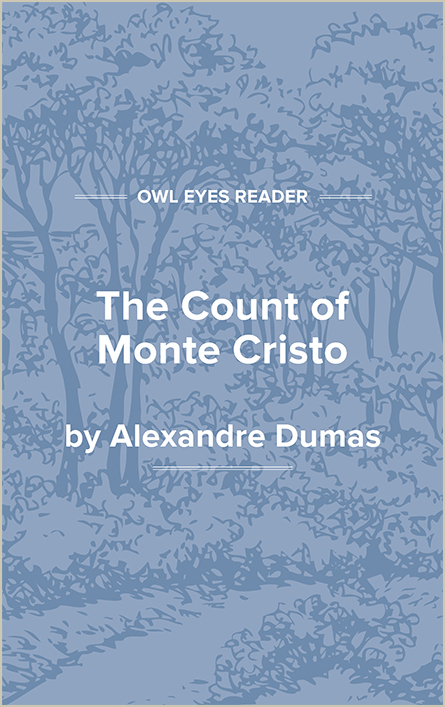Study Guide
Summary
The Count of Monte-Cristo, which may be the best example of Dumas’s narrative and imaginative power, is quite unlike The Three Musketeers. It is not historical. The time of its action is not remote, relative to the time of its publication. Its values are not aristocratic but bourgeois. It deals with the power of money, with what currently is called white-collar crime, and with greed. It is about shipping, commerce, banking, bribery, and corruption. Opposing a dishonest group including a lawyer, an accountant, and a banker are an honest shipowner and merchant marine officer.
The novel is also about the bourgeois values of getting demoted and promoted. Dantês, the merchant marine officer, gets promoted, because of his ability, to captain. He is about to marry his sweetheart, Mercédès. He is honest and naïve. He does not think that Danglers wants his captaincy or that Mondego wants his sweetheart. The men falsely accuse him of being a Bonapartist spy. He does not think that the prosecutor Villefort will convict him and send him to prison in order to cover up the wrongdoing of Villefort’s father. Dantês, for being too innocent, is demoted.
He learns in prison of a great treasure hidden on the island of Monte-Cristo. He escapes. Retrieving the fortune, he changes his identity, becoming the Count of Monte-Cristo. He is, in a sense, promoted. Now extremely wealthy, he seeks vengeance on those who have wronged him. He is also healthy and handsome, despite his years in prison.
“Monte-Cristo” is Italian for “Christ mount” or “Cristo hill.” Chatêau D’If, the island prison from which the count escapes (by water, necessarily), is French for “house of the evergreen tree.” In a...
(The entire page is 447 words.)
Owl Eyes subscribers get unlimited access to our expert annotations, analyses, and study guides on your favorite texts. Master the classics for less than $5/month!

